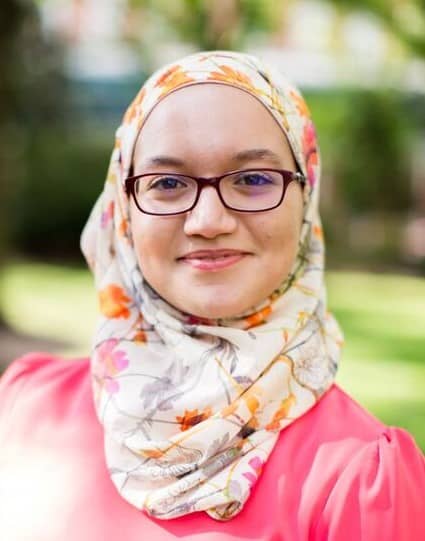
SARA ABOU RASHED, Special to The Denisonian — It was during the unbearable midterms week when many of us had forgotten to eat for hours, or worse yet, made the conscious choice to skip a meal or two altogether for fear of interrupting a steady, productive evening flow. I was in the library late at night and heard a bell. A woman said something along the lines of “Hi all, I’m a mindfulness facilitator and will be downstairs if you’d like to talk about mindful study breaks and practices.’’ Heads turned her way then immediately back to laptops, books, papers. Who even has the time to take a break, let alone talk to a stranger about mindful breaks?
I waited to see if anyone would take her up on her offer, get up and follow her to the atrium for advice. Not one person moved. I dismissed the interruption and went back to a lengthy paper I had only just started. An hour or so later, I needed to use the restroom so I did what I usually do and opted for the one downstairs, stretching my numb legs. The lady who had spoken earlier waved at me, though we had never met. Her room was empty, her door wide open. She offered chocolates; I gave in.
We talked and I ended up spending a precious 20 minutes of Midterms week with her. Linnea Pyne, it turns out, is the Mindful Denison Program Coordinator and a UCLA Certified Mindfulness Facilitator. I asked her a dozen different ways how I can make my stressful days less stressful, how to go about college life unburdened and pained. Each time, she gave the same single remedy: breathing. Mindful breathing, she called it, which grounds us back in our slouching bodies on the verge of a breakdown.
She assured me that stress is healthy, that we can handle it way more than we think and it only becomes dangerous when our minds and bodies have drifted far, far apart, we lose our groundedness, our awareness of the present moment. I listened, partly convinced, part calmed by her voice. We inhaled and exhaled a few mindful breaths then I excused myself and went back to my work, which had to be done, no matter my stress level.
The next day around noon, I found myself losing concentration while reading a 50-page chapter in my hall’s common room. I reread the same paragraph over and over in vain. The words blurred before my eyes and I didn’t know how on earth I’d make it through in time for class.
Undecidedly, I moved my chair away from the table where all my papers lay, I rest my arms on my thighs and closed my eyes. Inhale. Exhale. Inhale. Exhale. Inhale. Exhale. I breathed heavily a few times, imagining refreshing air making its way into my bloodstream, pushing out all my fatigue. It felt good to breathe, intentionally this time, to simply let the world stand still. I finished my few seconds of breathing and put back my chair, gathered my things hurriedly, and decided on a new scenery to go with the new air. I was headed for the door when I noticed in the corner a student I had never met. He had his eyes closed, his chair a few feet away from his table, his arms on his thighs. He, too, was breathing. Mimicking the same exact position I was in only moments earlier, a wide smile broke across my face. Observing him, I waited until he opened his eyes. I wanted him to know I knew.
He looked up at me from his place, nodding with pleading eyes and a side-smile, a child who got caught — about the best thank you I have ever received. There was no need for words; a single shared act was more than enough.

